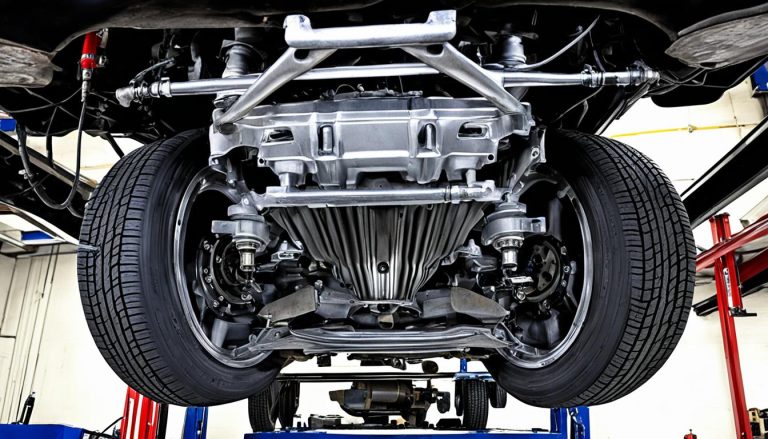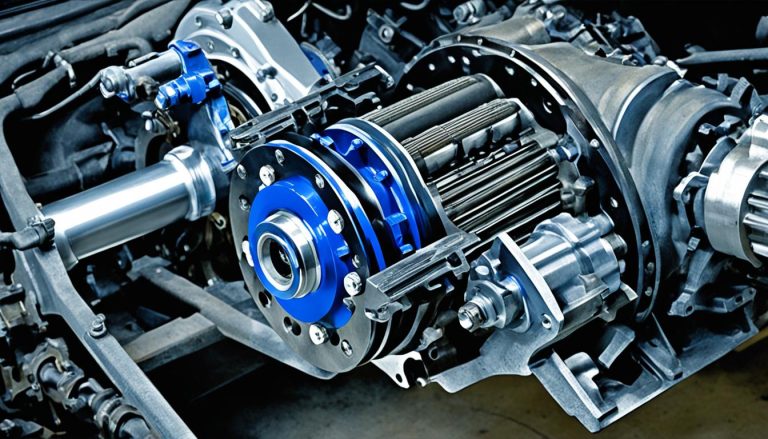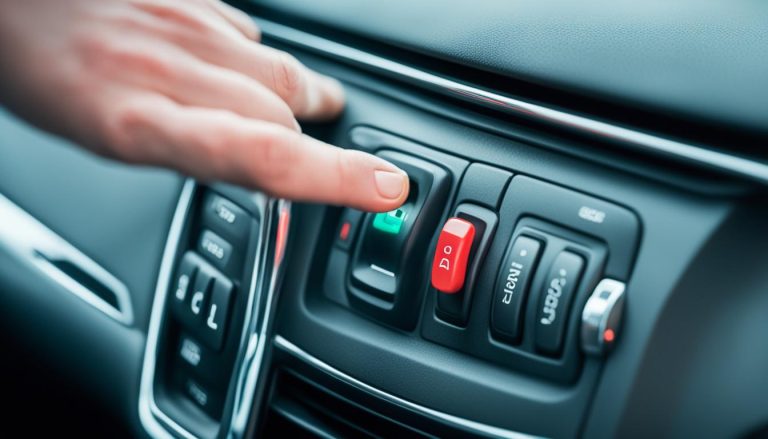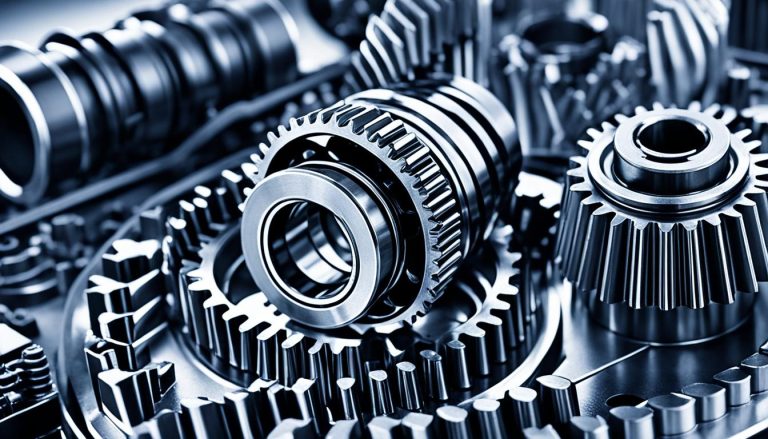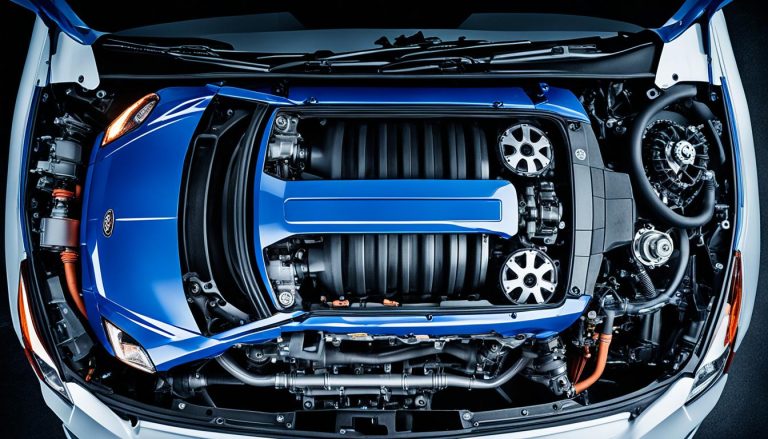2000 Jeep Cherokee: Limited Slip Rear Diff?
If you’re the proud owner of a 2000 Jeep Cherokee, you understand the importance of every component in your rugged ride, especially when it comes to the intricacies of its drivetrain. The rear differential, a critical factor in your Cherokee’s off-road prowess and on-road stability, can dictate how well your vehicle handles tough terrains. Perhaps you’ve wondered if your Jeep Cherokee is equipped with a rear differential limited slip and how it could affect your driving experience?
Gaining knowledge about the 2000 Jeep Cherokee differential system is vital for assessing its current capabilities and potential upgrades. If your adventures or daily commutes demand better traction and control, exploring a Jeep Cherokee rear differential upgrade could be the key to enhanced performance. Whether tackling rocky paths or slick streets, understanding the mechanics behind your Cherokee’s differential setup could make all the difference.
Key Takeaways
- Knowing whether your 2000 Jeep Cherokee has a limited slip rear differential can significantly impact off-road and slick surface handling.
- The standard rear differential in a 2000 Jeep Cherokee often requires checking or aftermarket installation for an LSD enhancement.
- Upgrading to a limited slip differential can greatly improve traction, reduce wheel spin, and lead to overall better vehicle control.
- Performing a VIN check or visual inspection of your Cherokee’s differential can reveal the type of differential currently installed.
- Before opting for an upgrade, consider the compatibility with your Jeep’s existing axle setup and the potential need for professional installation.
Understanding the 2000 Jeep Cherokee Rear Differential
If you’re diving into the nuances of your 2000 Jeep Cherokee, understanding the rear differential is key. This crucial component of your drivetrain is often taken for granted, but it’s essential for the dynamic distribution of power to your wheels, affecting everything from handling to off-road capability. Whether you’re battling slick roads or conquering rugged trails, the differential impacts your Jeep’s poise and prowess.
What is a Rear Differential?
The term rear differential may seem technical, but it’s simply the mechanism that splits engine torque two ways, allowing each output to spin at different speeds. It’s what gives your Jeep Cherokee the flexibility to corner smoothly, providing varied wheel rotation to accommodate the different distances each wheel travels during a turn. This is not only a matter of performance but also one of safety and tire longevity.
Standard Cherokee Differential Specifications
Know the specifics of your Jeep Cherokee’s differential is crucial when diagnosing problems or considering upgrades. The standard 3:07/Chrysler 8.25″ rear differential is a common setup, which may prompt you to wonder about the kind and condition of your current system—does it facilitate the best traction, or is it time to contemplate a differential replacement?
Here are some indications that service or a closer look may be needed for your Jeep Cherokee’s rear differential:
- Jeep Cherokee differential noise: A sign that there might be wear and tear or a more serious issue at hand.
- Jeep Cherokee rear differential problems: These could range from minor leaks to significant functionality concerns, like poor handling or excessive tire wear.
- Jeep Cherokee differential fluid: Essential for proper lubrication and performance; neglecting to check or change the fluid can lead to complications.
Looking after your Jeep’s differential involves frequent monitoring for problems and regular fluid changes as part of your differential service to help prevent costly repairs down the line.
| Aspect | Description | Common Issues |
|---|---|---|
| Fluid Maintenance | Regularly check and replace differential fluid to ensure proper lubrication and cooling. | Contaminated or old fluid can cause premature wear and overheating. |
| Noise Inspection | Be attentive to unusual sounds from the rear that may indicate differential wear or damage. | Groaning, whining, or clunking noises often signal internal issues. |
| Professional Service | Schedule periodic inspections and services by professionals familiar with Jeep differentials. | Lack of specialized care can lead to misdiagnosis or inadequate repairs. |
Whether it’s time for a differential fluid change, managing a persistent jeep cherokee differential noise, facing jeep Cherokee rear differential problems, contemplating a jeep cherokee differential replacement, or seeking a reliable jeep cherokee differential service, armed with a proper understanding and diligent care, you can ensure your rugged Jeep Cherokee continues to serve you on and off the road with the same vigor and reliability it’s known for.
Is a 2000 Jeep Cherokee Rear Differential Limited Slip
If you’re delving into the mechanics of your 2000 Jeep Cherokee, one question you might have is, “Is a 2000 Jeep Cherokee rear differential limited slip?” The answer can greatly affect your driving experience, especially if you enjoy the thrill of off-road adventures. A Jeep Cherokee limited slip differential (LSD) is designed to provide better traction by distributing power to both wheels, even if one is off the ground or on a slippery surface.
Let’s take a closer look at how you can determine if your Jeep Cherokee is equipped with this coveted feature.
Determining whether your Jeep Cherokee has a limited slip differential can be essential for optimal off-road performance. It ensures power is not wasted on a spinning wheel, giving you better control and traction.
Identifying Your Differential Type:
- Check your vehicle’s paperwork or perform a VIN check to see if the limited slip differential was a factory feature.
- Inspect the differential; a tag or stamping on the differential cover might indicate LSD if it’s original equipment.
While some 2000 Jeep Cherokees came with an LSD, they were not as common and many today might have an aftermarket LSD installed. If you’re not sure about your vehicle’s spec, a professional inspection is a good step forward.
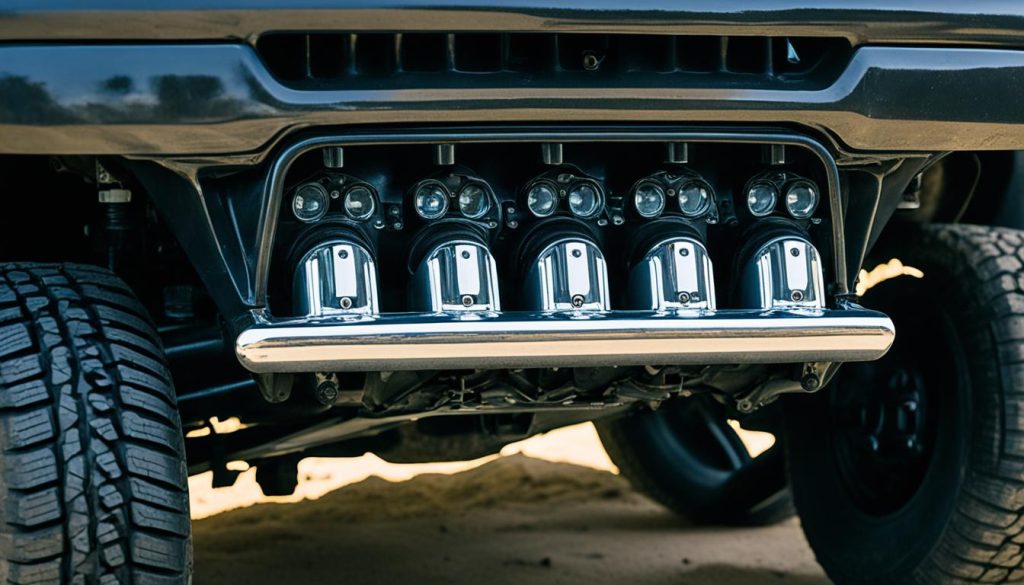
To further enhance your understanding, below is a table comparing characteristics of typical limited slip and open differentials, to help you recognize what might be installed in your Jeep:
| Differential Type | Characteristics | Suitable For |
|---|---|---|
| Limited Slip Differential (LSD) | Power to both wheels, prevents excessive wheel spin, better traction | Off-roading, wet/slippery roads, performance driving |
| Open Differential | Power to the wheel with least resistance, can lead to one-wheel spin | Regular commuting, dry conditions, casual driving |
If after your investigation you find that your Jeep is not equipped with an LSD, don’t worry. Many owners opt to upgrade their differential to a limited slip type for improved off-road prowess and better performance in challenging conditions.
Spotting the Difference: Limited Slip vs. Open Rear Differentials
When seeking a Jeep Cherokee rear differential upgrade or troubleshooting Jeep Cherokee rear differential problems, understanding whether your vehicle has a limited slip differential (LSD) or an open differential is crucial. The type of differential not only affects the handling and performance of your Cherokee but also dictates the repairs or enhancements needed to tackle Jeep Cherokee differential noise and other issues effectively.
Physical Inspection Tips
One reliable way to discern between an LSD and an open differential is through a physical inspection. Should you notice unusual handling or a distinct noise emanating from the vehicle’s rear, it’s worth taking a look at the differential assembly. For those equipped with an LSD, the gears within tend to have a squared-off appearance, contrasting the rounded gears found in open differentials. An at-home method involves lifting the Jeep and manually spinning a rear wheel; wheels turning in the same direction suggest the presence of an LSD, whereas wheels that turn in opposite directions point towards an open differential’s classic behavior.
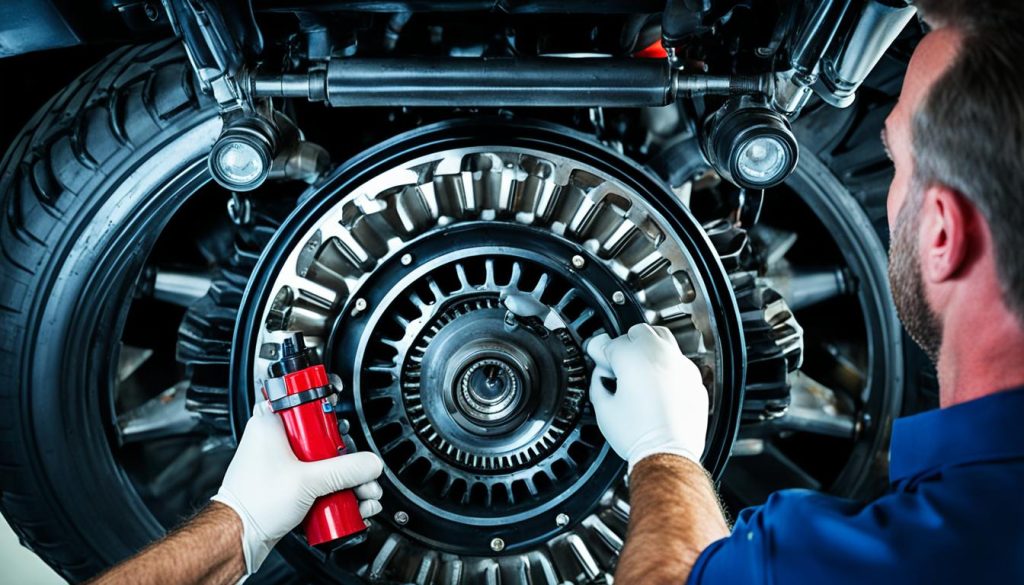
Performance Characteristics of Limited Slip Differentials
An LSD is engineered to automatically redistribute torque to the wheel with more grip if the other wheel begins to lose traction. This quality of an LSD can be a game-changer for off-road enthusiasts or those who frequently drive on slippery surfaces. By actively managing torque distribution, an LSD prevents excessive wheel spin and contributes to a more stable, controlled driving experience—something open differentials merely cannot match. Upgrading to an LSD can be the key to overcoming obstacles and maintaining control in conditions where regular differentials often fall short.
If you’re experiencing differential troubles or considering an upgrade for your Jeep Cherokee, examining the type of differential you have is a critical first step. Identifying whether you have an LSD or an open differential will guide your next steps, from managing differential noise to enhancing off-road performance.
Upgrading to a Limited Slip Differential for Your Jeep Cherokee
As a Jeep Cherokee owner, enhancing your vehicle’s performance may be high on your priority list. One of the most impactful modifications you can consider is a Jeep Cherokee rear differential upgrade. A limited slip differential (LSD) is not just a component; it’s an investment in your vehicle’s handling and safety, especially if you frequently drive on challenging terrain or in varied weather conditions.
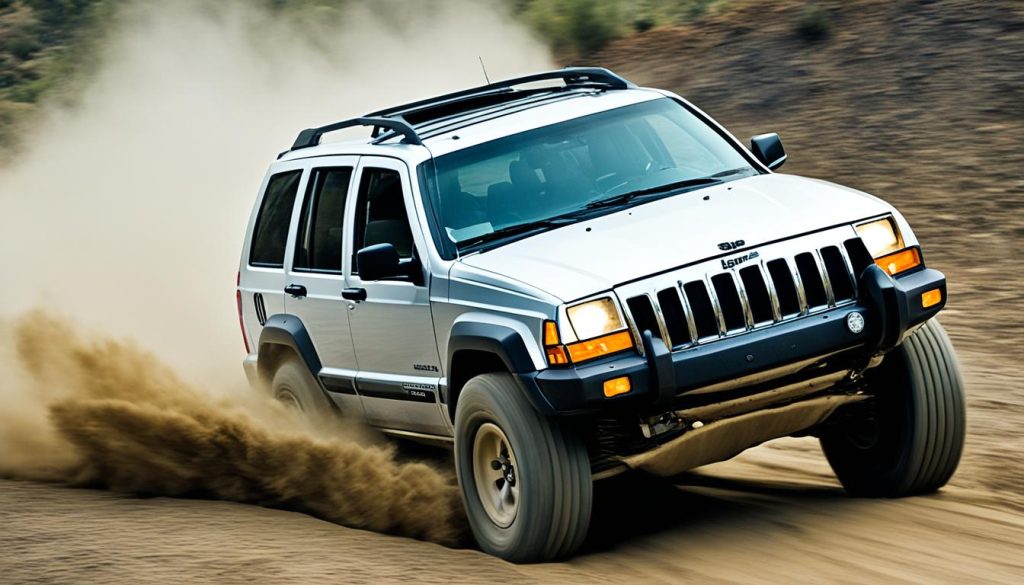
Such an upgrade amplifies your control and confidence on the road. The mechanical prowess of an LSD allows power to be automatically redistributed between the wheels, ensuring that wheel spin is minimized and traction is maximized — a feature that epitomizes the robustness of the Jeep Cherokee.
Benefits of Upgrading the Rear Differential
An LSD does wonders for your off-roading adventures, providing that assurance of greater grip when traversing muddy paths or rocky slopes. It’s not just for the off-road enthusiast though. Everyday drives become smoother as your Cherokee can better maintain traction in rain, snow, or ice. Reduced tire wear and tear owing to less wheel spin is another economic advantage that comes with this upgrade.
Installation Considerations and Compatibility
Now, before you jump on the bandwagon to get a Jeep Cherokee limited slip differential, it’s essential to consider compatibility. Thankfully, most 2000 Jeep Cherokees are accommodating to LSD installations. However, choosing the right LSD to match your Jeep’s gear ratio and consulting a professional for a Jeep Cherokee differential service are steps you can’t afford to skip.
A wrong choice in differential or an improper installation can lead to more than just a dent in your pocket; it might result in a vehicle that’s not performing optimally. But worry not, your upgrade, when done right, could mean a world of difference for your Jeep’s drivability. Professional installations ensure that your prized Jeep Cherokee is geared up for a renewed, more capable life on the road.
Remember that when you decide upon a Jeep Cherokee differential replacement, you’re not just tweaking your vehicle — you’re setting it up for a future where every road is a canvas for adventure. Enjoy the ride with unparalleled confidence in your Jeep’s ability to take on the road less traveled.
Maintenance and Troubleshooting for Your Cherokee’s Differential
Keeping your Jeep Cherokee running smoothly means paying regular attention to the rear differential. It’s the component that works hard to keep your wheels moving properly, especially when you’re conquering tough terrain. Let’s dive into the essentials of Jeep Cherokee differential service and what signs to watch for that might indicate Jeep Cherokee rear differential problems.
Regular Differential Service and Fluid Changes
Changing your Jeep Cherokee differential fluid is a critical maintenance task that can’t be overlooked. This fluid keeps the differential’s moving parts cool and lubricated. Over time, it breaks down and can get contaminated, leading to wear and potential failure. Experts typically recommend a differential fluid change every 15,000 to 30,000 miles, but check your owner’s manual for specific guidance for your vehicle.
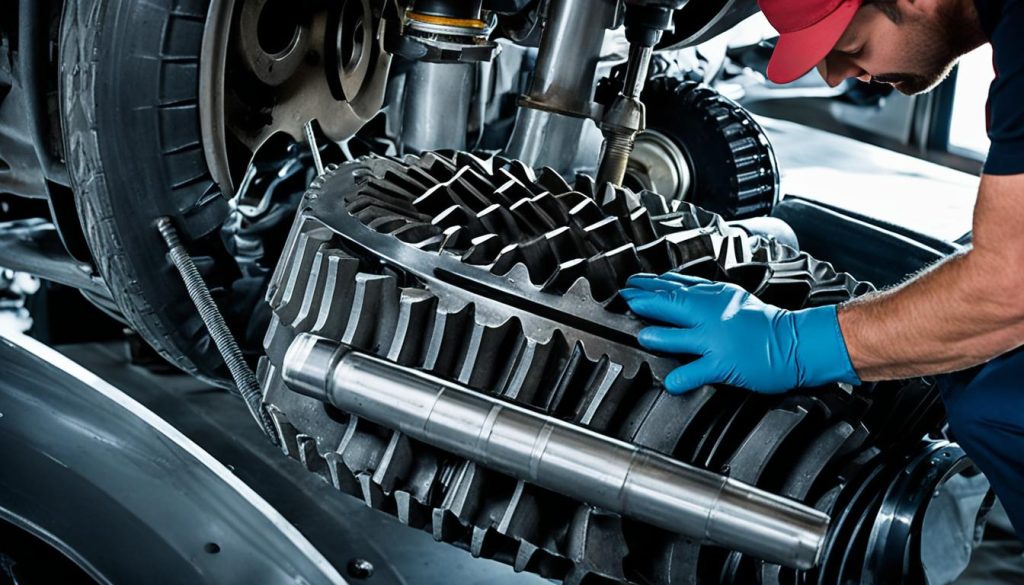
Identifying Common Rear Differential Problems
Early detection of Jeep Cherokee differential noise or other issues can save you from a costly fix down the road. Any odd sounds like whining, humming, or howling when accelerating or turning can signal a problem. It’s also wise to keep an eye out for leaks and wear that could cause performance discrepancies. If you notice any signs of trouble, it’s time to consult with a specialist who knows their way around a Jeep differential.
| Sign/Symptom | Possible Cause | Suggested Action |
|---|---|---|
| Loud whining noise during acceleration | Worn gears or bearings | Schedule differential inspection and service |
| Vibration or shudder | Universal joint wear, or damaged drive shaft | Check and replace universal joints or drive shaft |
| Leaking fluid beneath vehicle | Damaged seals or gaskets | Replace seals and top off differential fluid |
| Grinding gears | Lack of lubrication or gear misalignment | Refill or change differential fluid, inspect gear alignment |
Remember, your Jeep Cherokee is built to handle the rough stuff, but it can only do so with proper care and regular maintenance. Keep your adventures going smoothly by giving your differential the attention it deserves.
Real Experiences: Jeep Owners and Their Differential Upgrades
Within the pulsing heart of the Jeep community, conversations about Jeep Cherokee rear differential limited slip upgrades are sparking interest and sharing of invaluable personal experiences. Forums and social media platforms are bustling with activity as members exchange tips, insights, and detailed anecdotes about their differential improvements, painting a picture of both the trials and the triumphs associated with these endeavors.
Community Discussions on Differential Performance
As you immerse yourself in these community discussions, you’ll find a wealth of knowledge on Jeep Cherokee rear differential upgrades. These nuggets of wisdom stem from real-world experiments and hardcore adventuring, giving you a clearer understanding of how a limited-slip differential could invigorate your Cherokee’s performance. Hearing from those who’ve traversed the same path ensures you have a solid grasp of what to expect and what to aim for in terms of reliability and capability improvements.
Case Studies: Upgrading and Replacing Differentials
Dive into the repository of case studies and witness firsthand the transformative impact of a Jeep Cherokee differential replacement or service. Whether it’s to surmount rugged terrains with enhanced confidence or to solve an ongoing issue with the original differential, these stories from Jeep owners like you serve as a road map to making successful modifications. These real-life upgrades can assist in avoiding potential setbacks and can encourage you to make the most effective choices for your vehicle, ensuring that your Jeep Cherokee differential service results in an optimally performing and resilient 4×4 companion.
FAQ
Does my 2000 Jeep Cherokee have a limited slip rear differential?
The standard rear differential on a 2000 Jeep Cherokee is typically not a limited slip differential. It is often the 3:07/Chrysler 8.25” model. However, some models may have an LSD if it was installed as an aftermarket upgrade or if it was a special option from the factory. You can confirm by checking through VIN details or by physically inspecting the differential.
What is a rear differential, and how does it affect my Jeep Cherokee’s performance?
A rear differential is a mechanical component that allows the wheels on your vehicle to rotate at different speeds, which is crucial for smooth turns and handling. It impacts your Jeep Cherokee’s performance by balancing power distribution between the wheels, especially important for maintaining traction in off-road or slippery conditions.
How can I identify a limited slip differential on a 2000 Jeep Cherokee?
You can identify a limited slip differential (LSD) by conducting a visual inspection of the rear differential, where you’ll see squared-off internal gears compared to the rounded gears of an open differential. Additionally, lifting the vehicle and rotating one rear wheel can indicate an LSD if the opposite wheel rotates in the same direction; with an open differential, the opposite wheel would rotate in the opposite direction.
What are the benefits of upgrading to a limited slip differential in my Jeep Cherokee?
Upgrading to a limited slip differential can significantly enhance traction, as it distributes torque to the wheel with the most grip, reducing wheel spin and ensuring better control in various driving conditions. This is particularly advantageous for off-roading or navigating slippery roads. An LSD also helps with vehicle stability and potentially reduces tire wear.
Are there any special considerations for installing a limited slip differential in a 2000 Jeep Cherokee?
Yes, you must ensure that the chosen LSD is compatible with your Jeep’s axle and gear ratio (typically 3.07 for the year 2000 models). Proper installation requires attention to gear setup, including backlash and bearing preload, which may require professional assistance to avoid differential issues.
What maintenance is needed for my Jeep Cherokee’s differential, and how often should it be done?
Regular maintenance for your Jeep Cherokee’s differential includes periodic fluid changes, using the correct type of fluid as specified by Jeep, and checking for and addressing leaks. This helps prevent issues like differential noise or damage from contaminated lubricants and should generally be done according to the maintenance schedule in your owner’s manual or more frequently if you often drive in harsh conditions.
How can I troubleshoot common differential problems in my Jeep Cherokee?
Common signs of differential issues include noises like whining or howling, which may indicate worn bearings or gear damage. If you notice performance discrepancies or abnormal sounds, it’s important to inspect the differential components and consult with a Jeep specialist or a reputable 4X4 shop experienced with differential repairs.
Where can I learn more about differential upgrades from experienced Jeep Cherokee owners?
Jeep community forums and social media platforms are excellent resources for learning about differential upgrades. Many Jeep owners share their experiences with different limited slip differentials, installation tips, and recommendations. Tapping into community discussions can give you valuable insights into the best upgrades and solutions for your specific needs.

